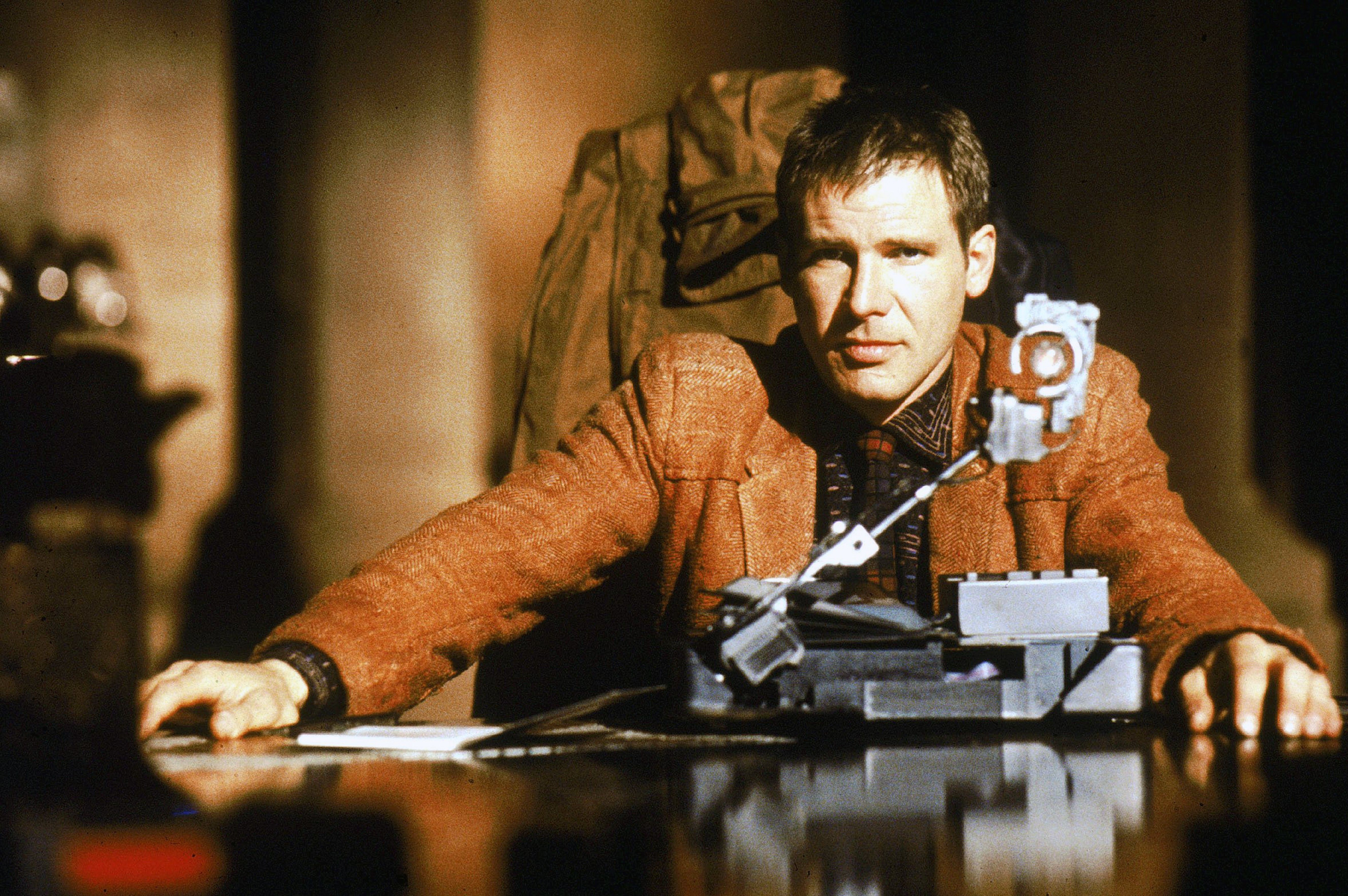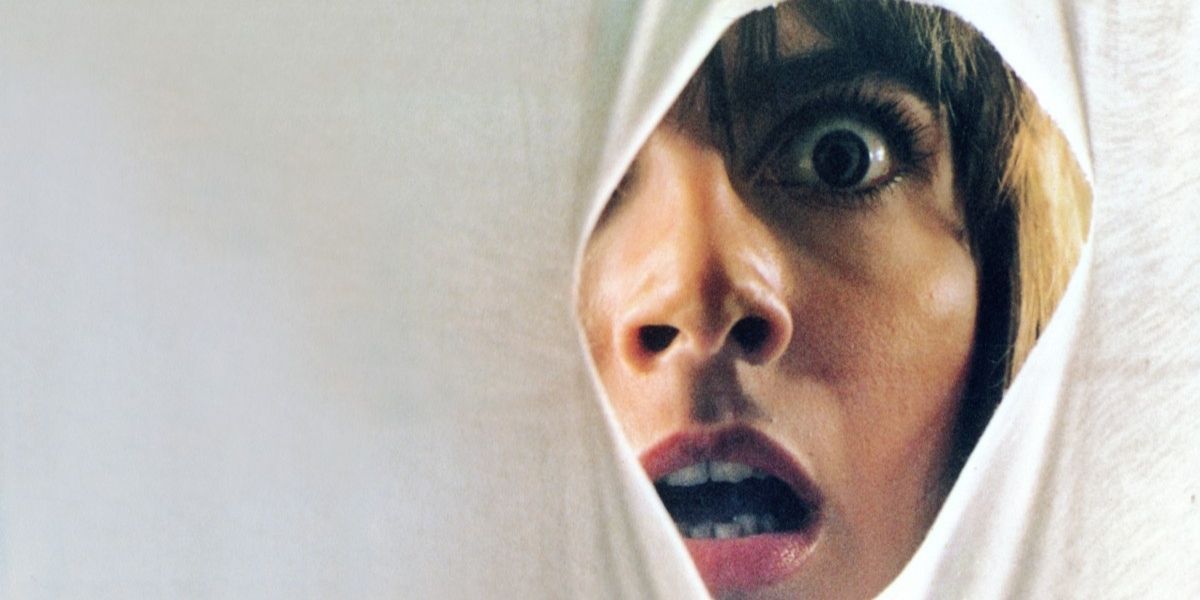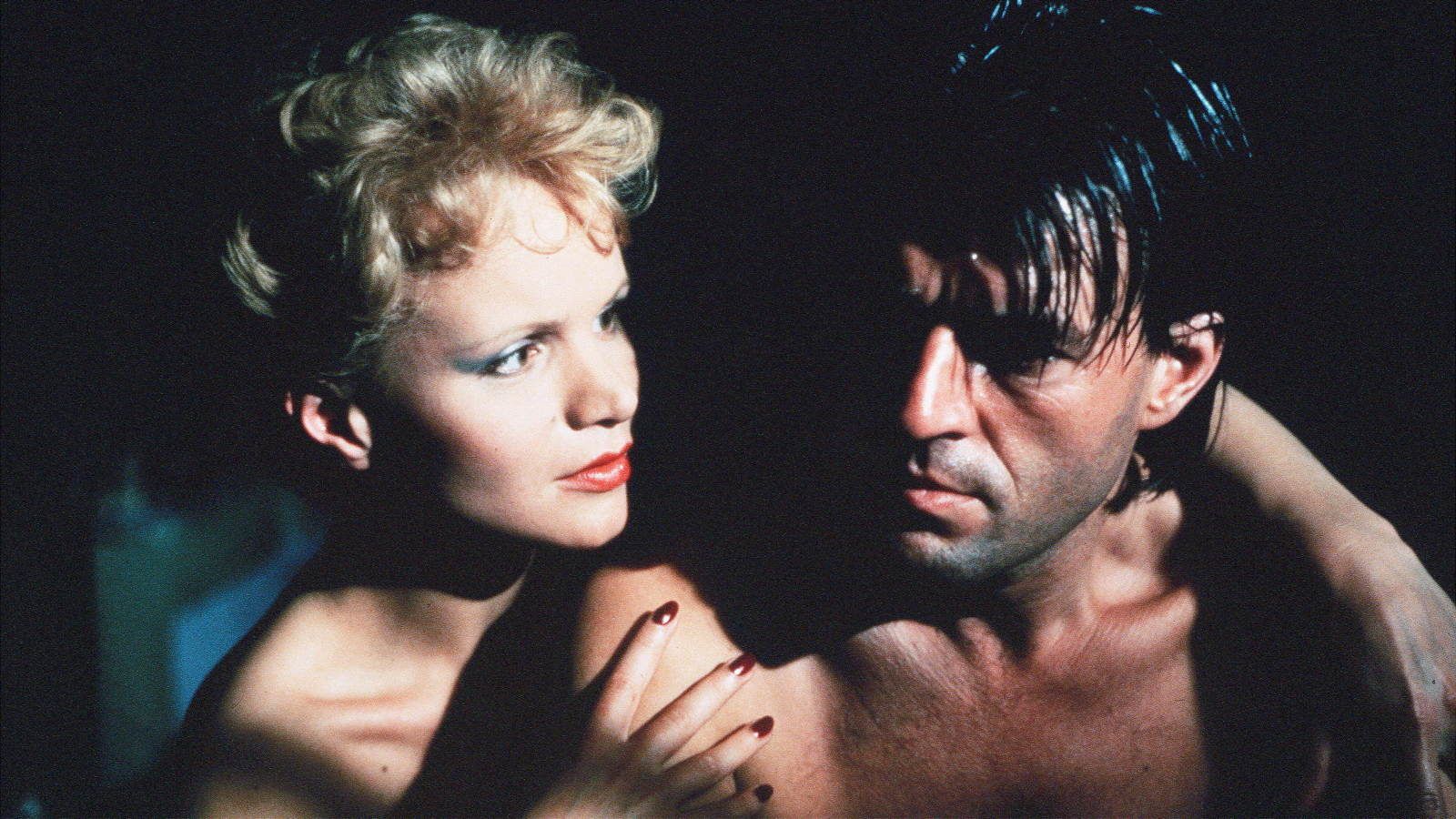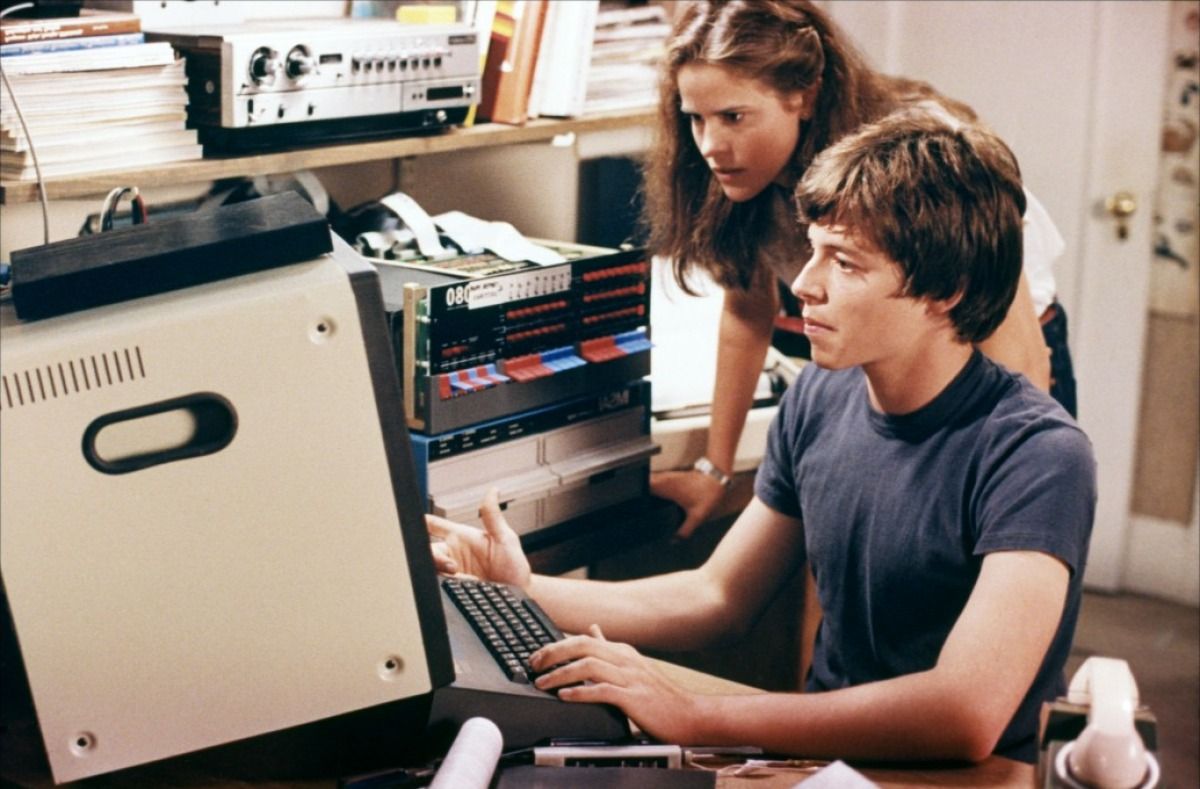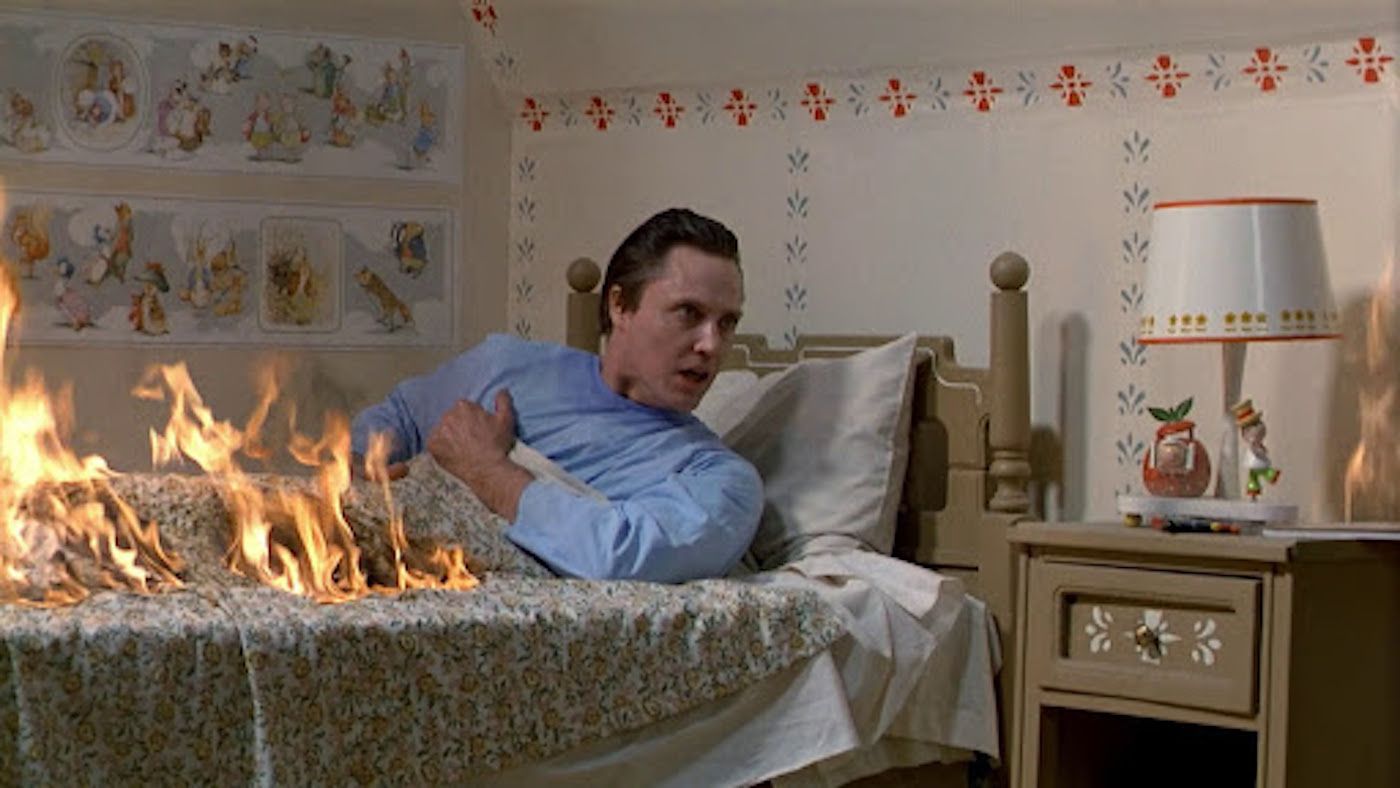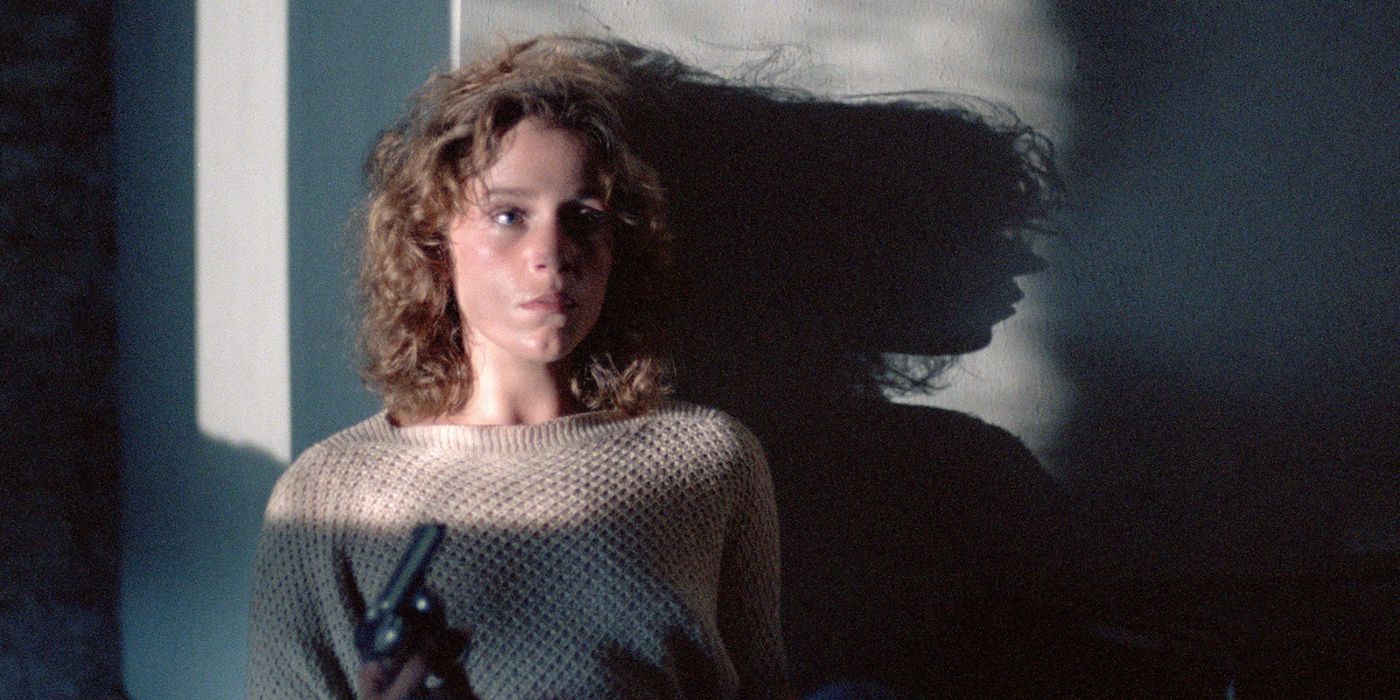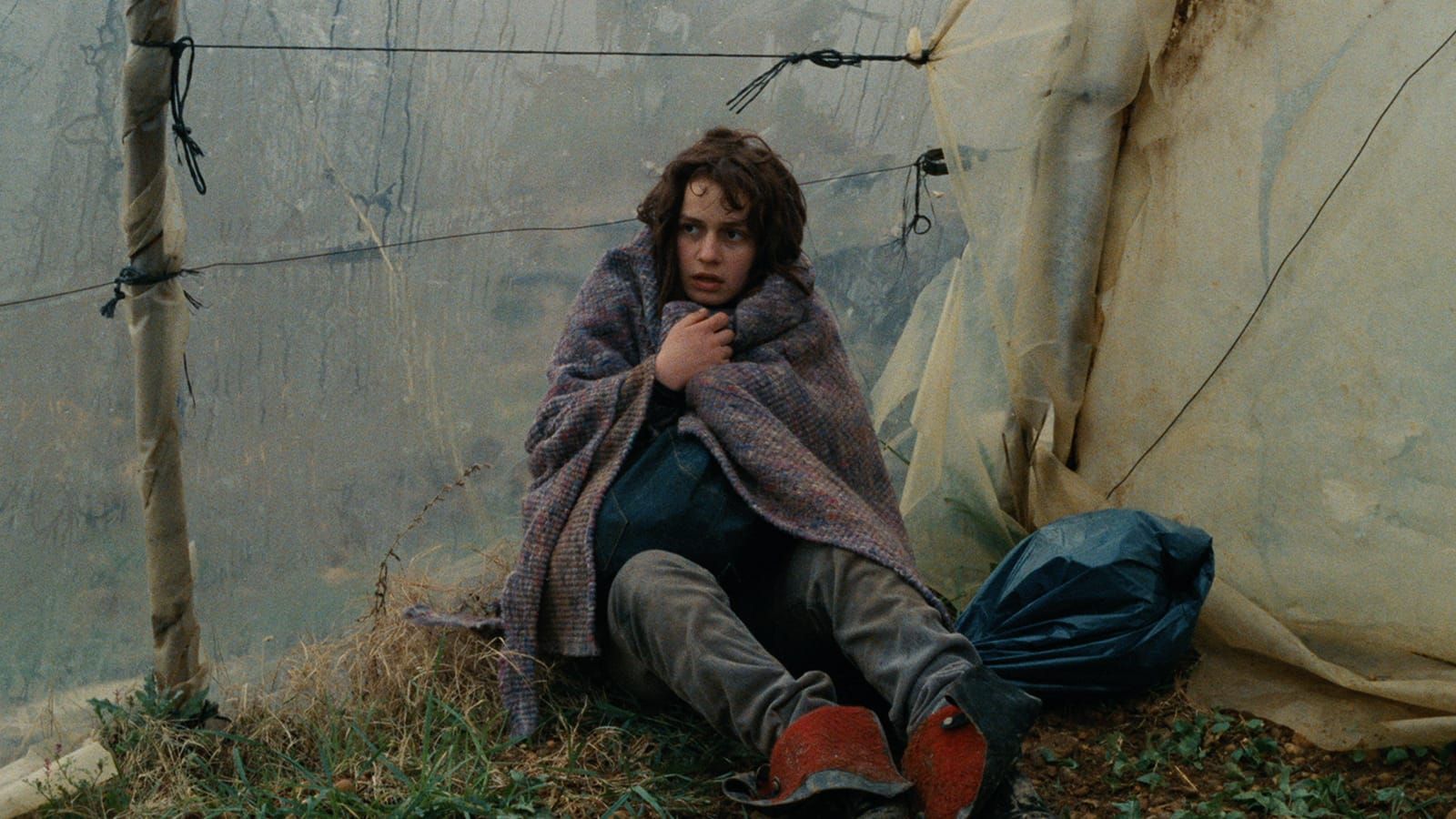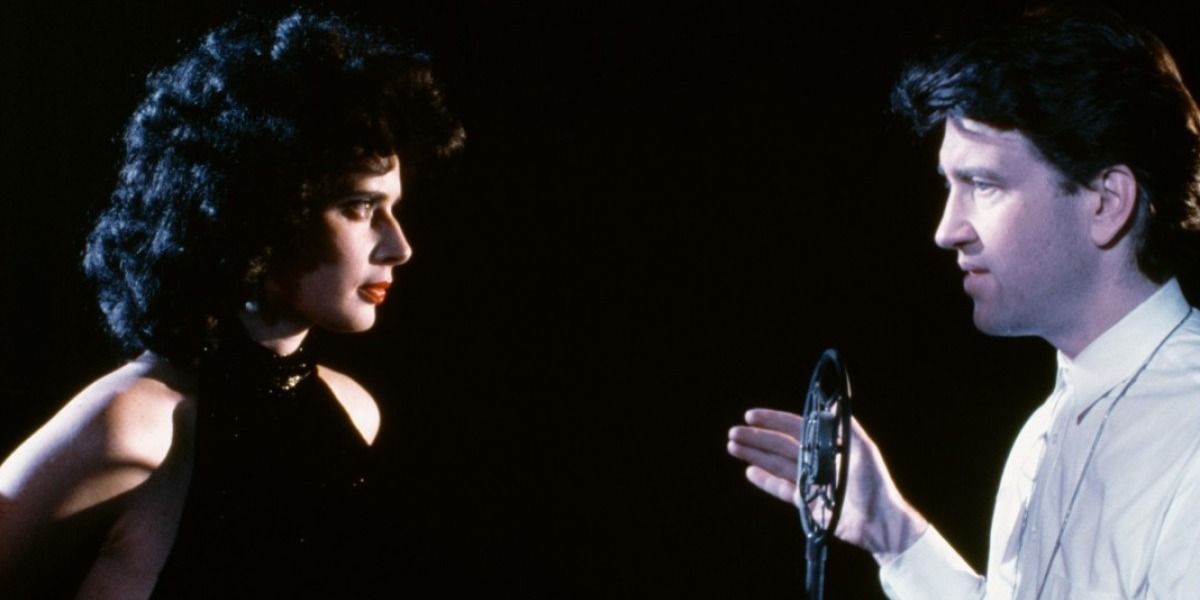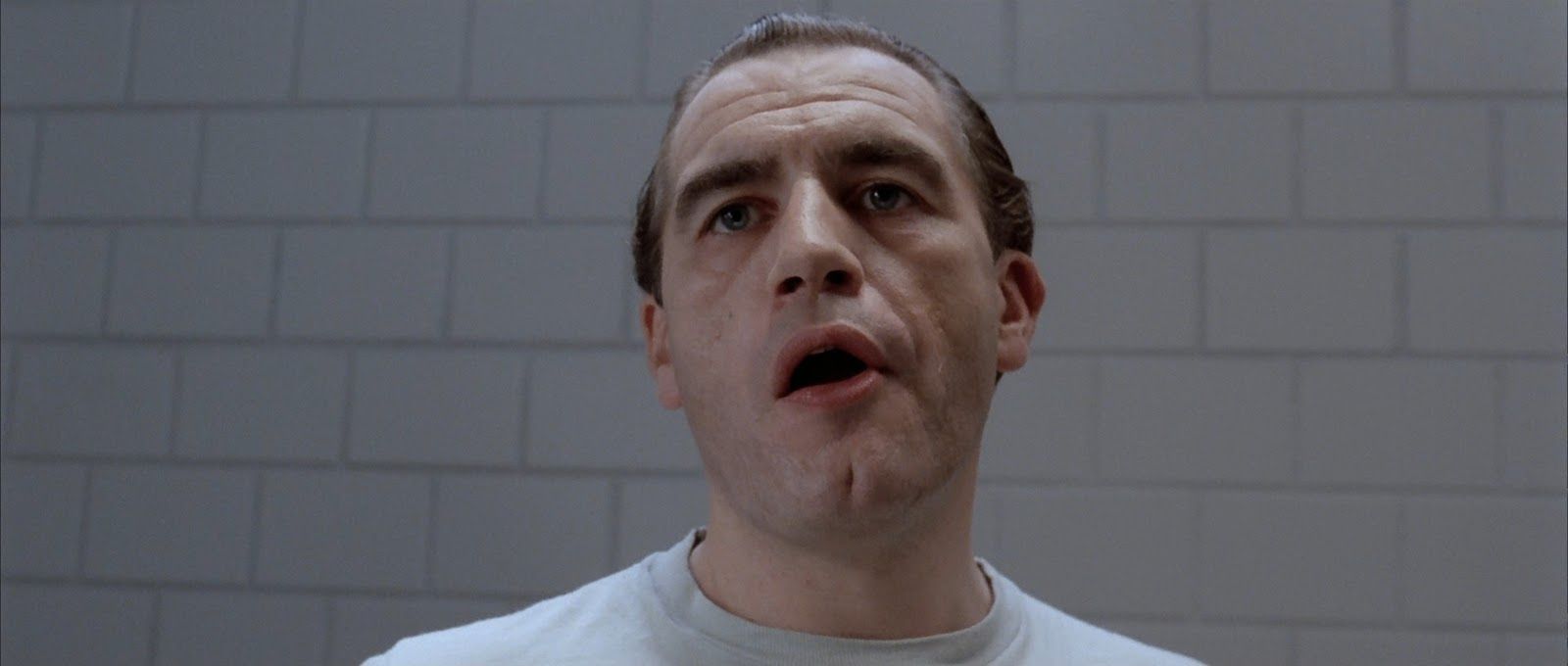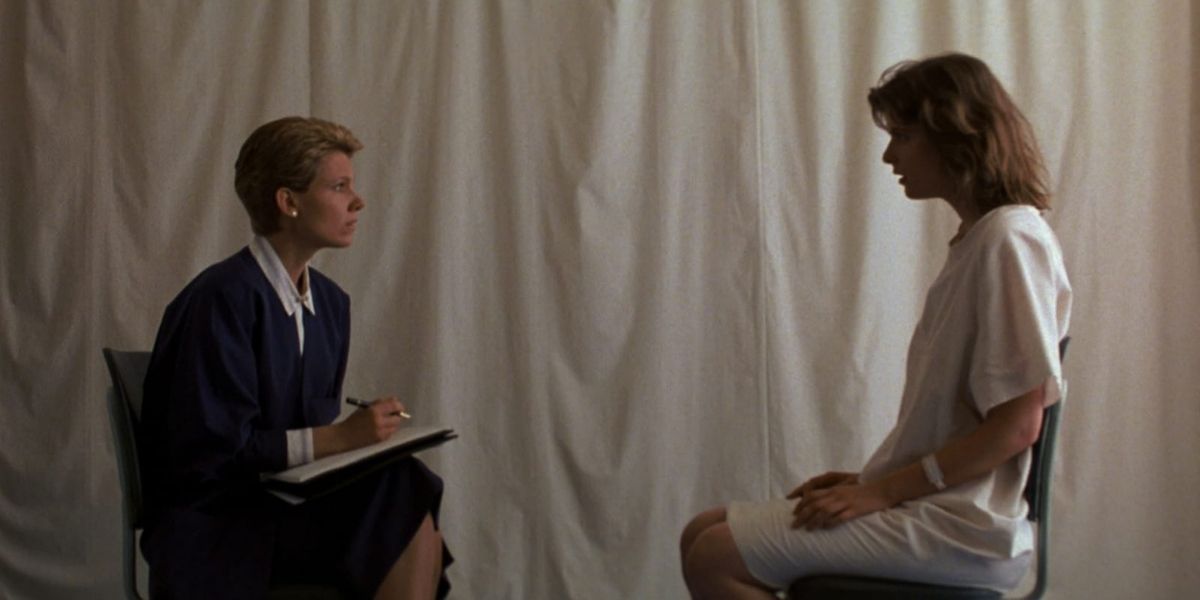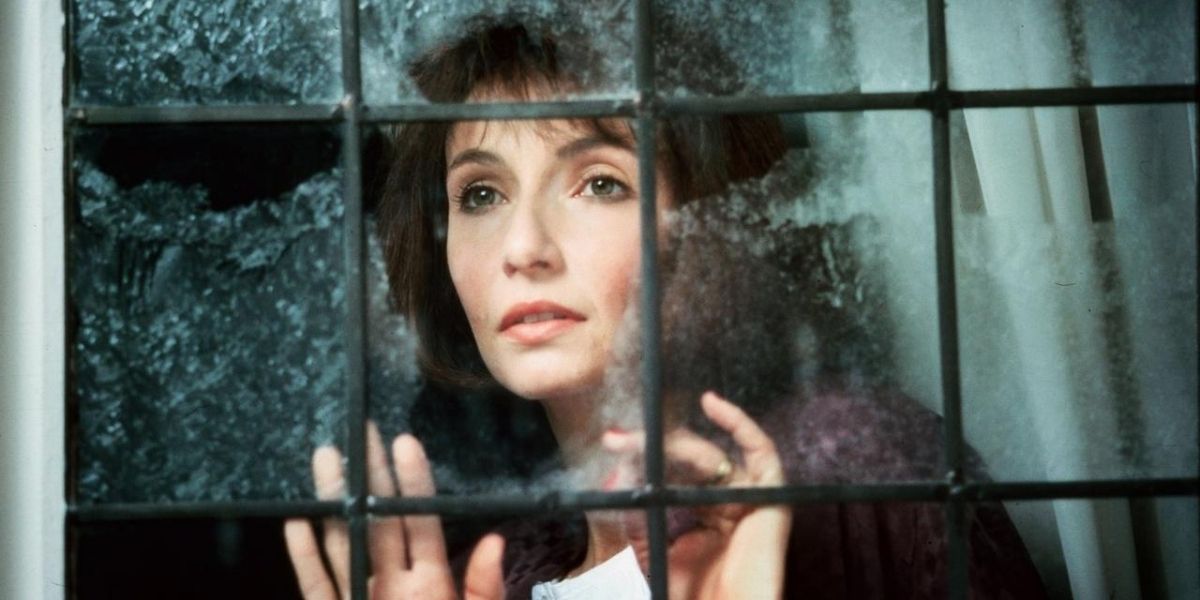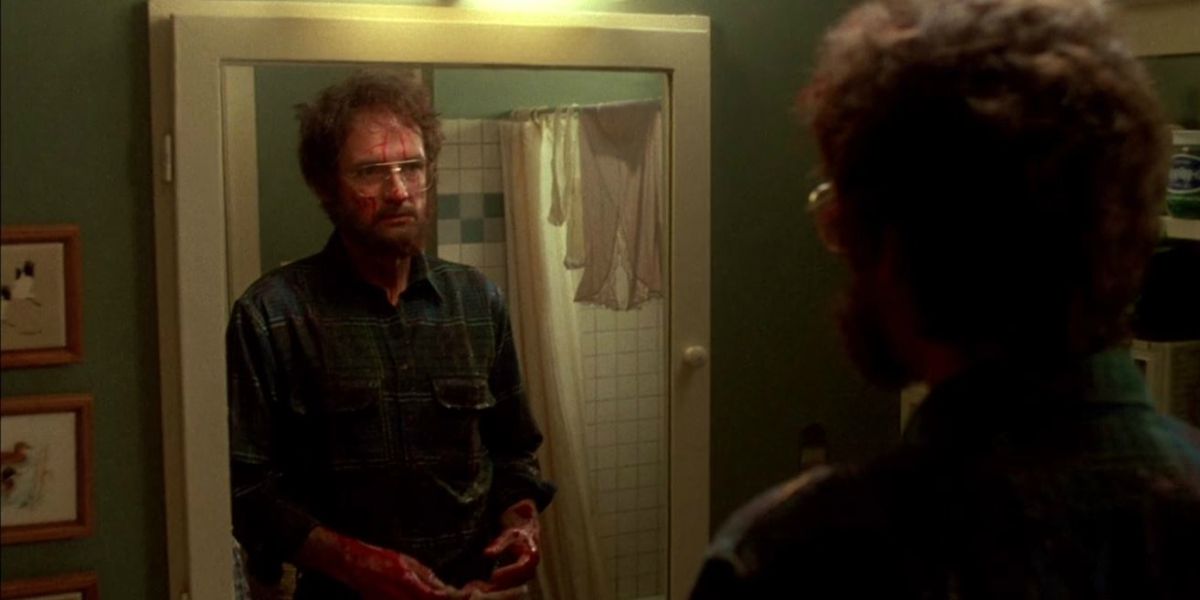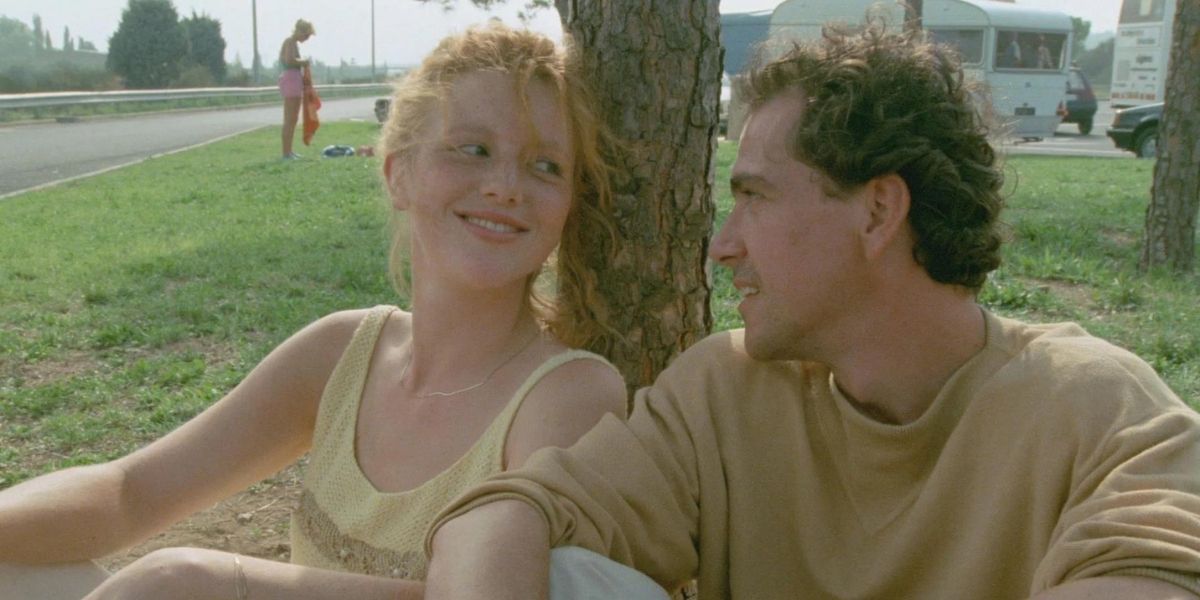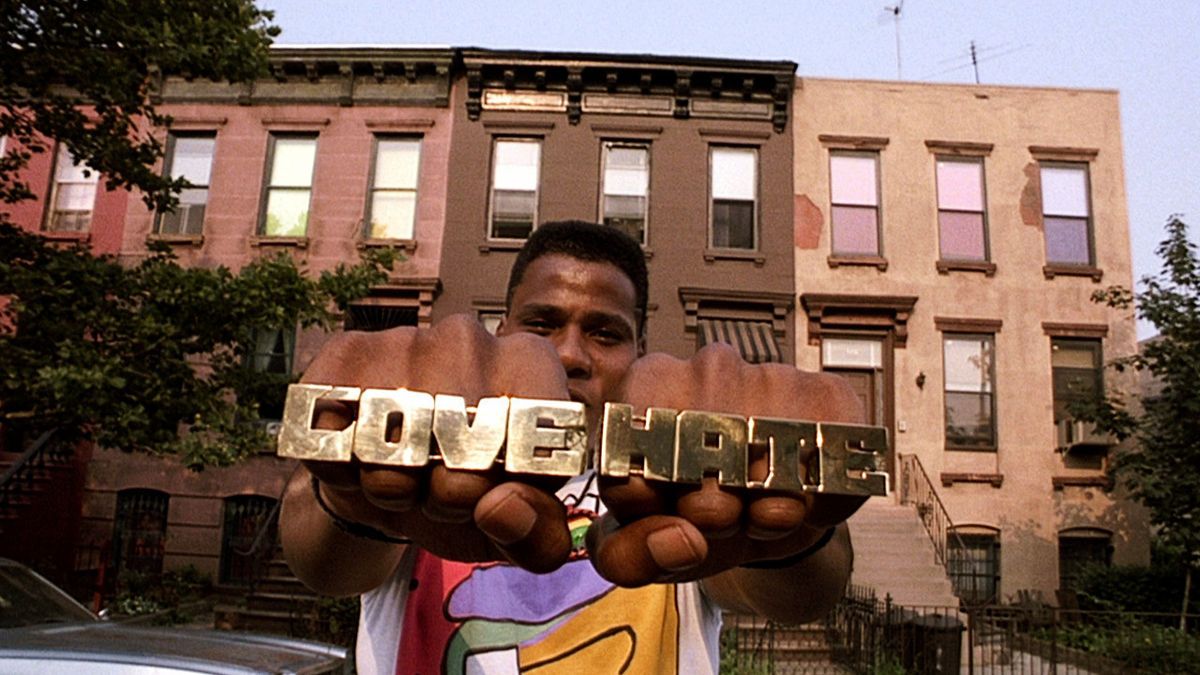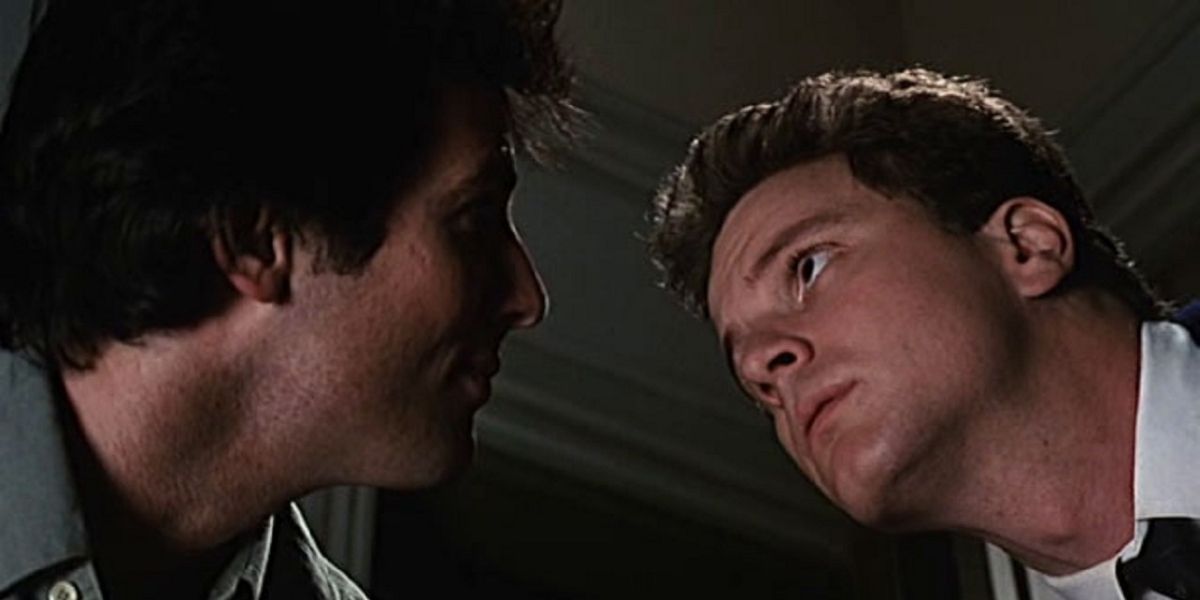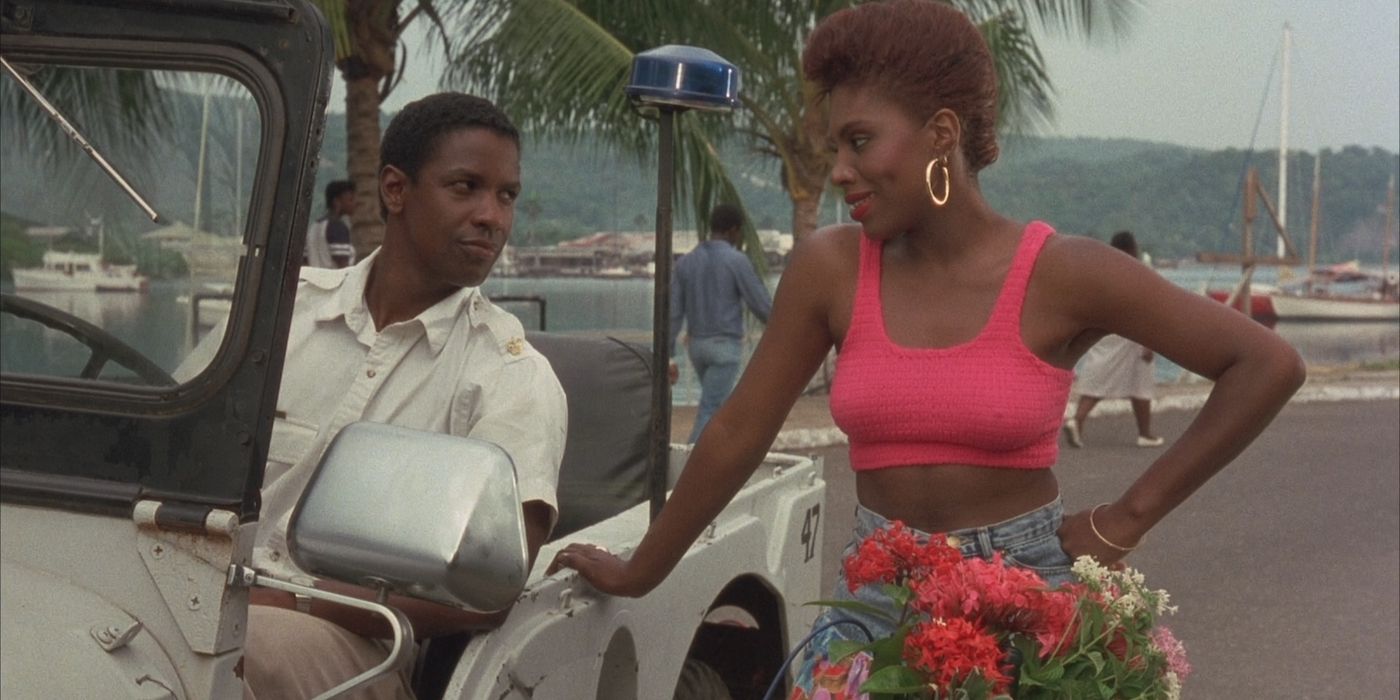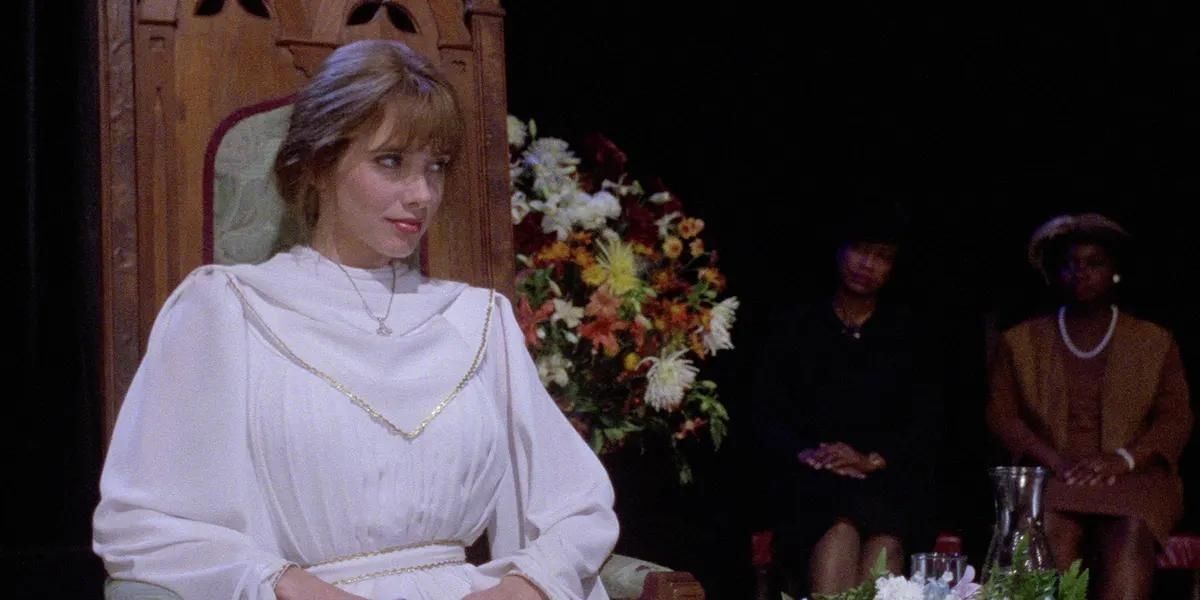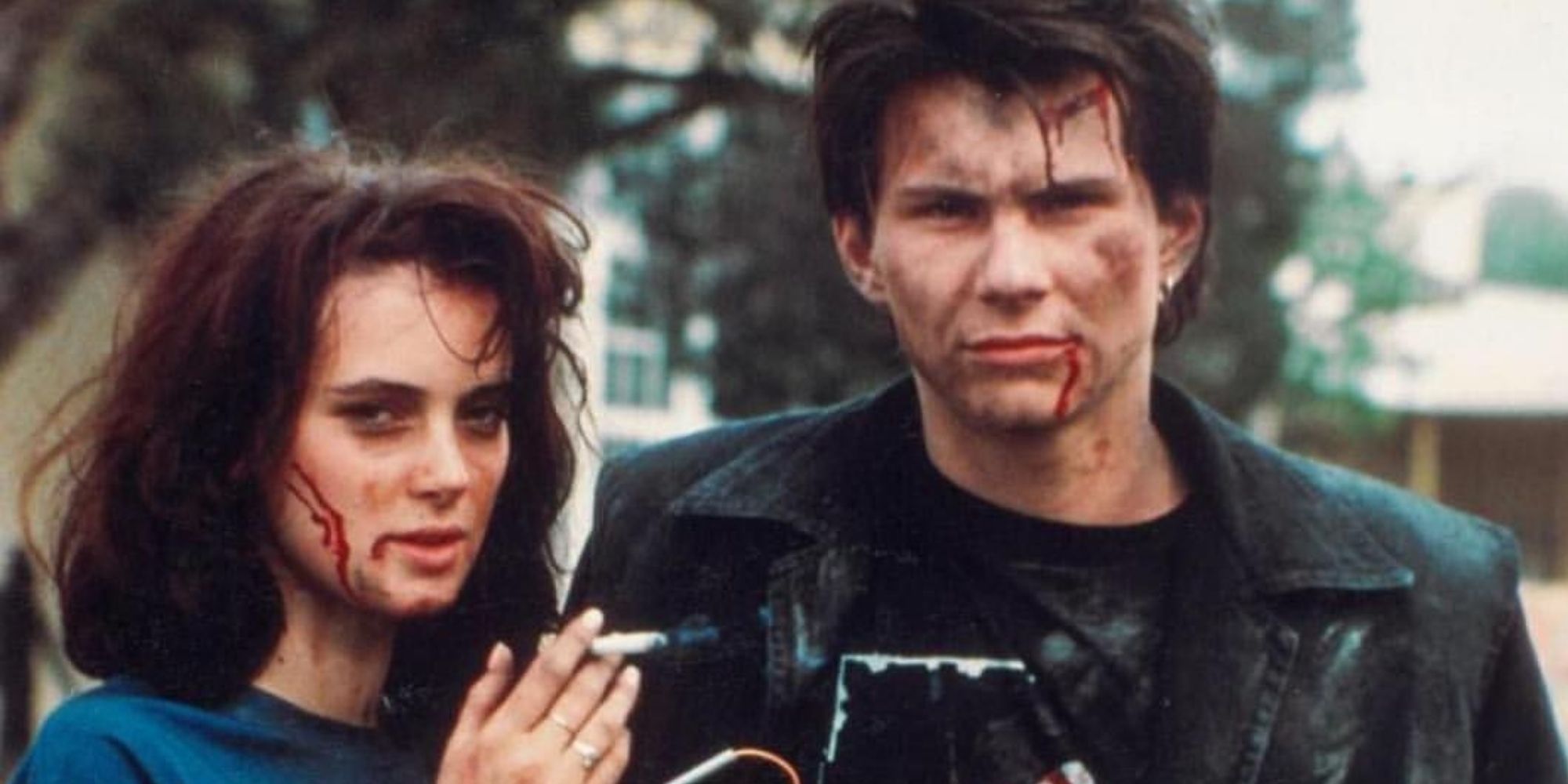As covered in the 25 Best Psychological Thrillers of All Time, the genre is a notoriously difficult one to pin down. To keep things consistent, we’ll be sticking to the rules laid out in this previous article and focusing on two defining characteristics: the films must be 1) absolutely thrilling and 2) rooted in psychological anxiety.
It’s worth noting upfront that the 80s were a decade cinematically rife with homophobia, transphobia, racism, and sexism. The combination of this genre and this era is especially problematic, and it was more challenging than one might hope to find entries that didn’t rely on horrifically reckless depictions of sexual assault or harmful homophobic stereotypes. Even more of a struggle was the search for diverse perspectives - the anxieties permitted exploration in this decade tended to be overwhelmingly white and male.
That said, we’ve done our best to include entries that avoid these pitfalls and allow for the exploration of tension and anxiety from as many perspectives as possible. The caveat of no more than one entry per director will also continue to be observed. Finally, with the list being restricted to one decade, there will be some overlap with the genres of horror, sci-fi, and crime thriller or noir.
With these challenges in mind, there was still some incredibly thoughtful and imaginative filmmaking going on in the 80s. So push up your jacket sleeves, un-center that ponytail, and get ready for a thrilling ride.
The Shining (1980)
Filled with an inordinate number of quotable moments for a horror film, Stanley Kubrick’s 1980 classic remains just as terrifying today as it was 40 years ago. The film, along with the other Stephen King-penned classic Misery, has become synonymous with the modern conceptualization of “cabin fever,” and Jack Nicholson’s on-screen descent into a claustrophobic, alcohol-fueled madness is one of the most iconic performances of all time.
It’s worth noting that Stephen King is actually on record as hating the film for not executing the psychological piece well enough, calling it a “big beautiful Cadillac with no engine inside it” and insinuating that Kubrick was so focused on the visuals that he forgot to build Jack Torrance a meaningful arc. In fact, King’s source material is framed much more as a tragedy than horror, exploring a man’s epic battle to overcome his inner demons (one which he ultimately loses). Perhaps then it makes sense to think of both pieces as two brilliant, but separate works of art, each with its own powerfully effective take on claustrophobia, alcoholism, and the internal struggles of domesticity.
Altered States (1980)
Ken Russell’s Altered States is the first of a few body horror entries on this list, all of which employ a horrifying physical transformation to trigger an equally disturbing psychological one. The late great William Hurt plays Edward Jessup, a psychopathologist whose marriage is on the brink of divorce and who is obsessed with studying states of consciousness beyond our “waking states.” Though there are some unfortunate aspects of “white spectator” horror (as coined by Mark H. Harris on his “Black Horror Movies” site) centered around the main character’s interaction with a tribe in Mexico, the film is mostly concerned with exploring consciousness and reality on an ambitious scale.
If you were to read some of the scenes from this film described on paper, it’s nearly impossible to imagine them brought to life in actual flesh and bone. Russell’s ability to convincingly capture at least some of novelist Paddy Chayefsky’s metaphysical twists and turns with 80s special effects is highly admirable, resulting in a bizarre, trippy journey all the way back to the primordial plane of existence.
The Changeling (1980)
Peter Medak’s The Changeling had the misfortune of being the less-acclaimed, less-successful haunted house horror-thriller that came in 1980 (the other being the aforementioned The Shining). Fortunately for us, there’s enough room on this list for more than one creepy mansion. Rather than Jack Nicholson’s aspiring writer, we’ve got George C. Scott as an established, successful composer who relocates to an old Victorian house in Seattle after the sudden deaths of his wife and daughter. As you may have guessed, he soon begins experiencing some disturbing and unexplained phenomena that will pull him into a decades-old family tragedy.
The film delivers on a tense atmosphere, relying much more on intimate shots and tone than jump scares. Scott’s performance also adds a gruff gravitas to the mix in a more subdued than usual turn for the actor. While it may have been the less popular of the two haunted houses of 1980, the film has seen renewed appreciation as a Canadian classic in recent years, with Martin Scorsese even including it on his list of 11 scariest movies of all time - alongside, of course, The Shining.
Body Heat (1981)
Easily the steamiest entry on this list, Body Heat is often cited as the quintessential example of the subgenre of “erotic thriller.” Taking its cue from a slew of 1940s noirs, the film follows a South Florida lawyer (William Hurt) who’s convinced by his married lover - as famously embodied by the sultry Kathleen Turner - to murder her wealthy husband. Paranoia, deception and copious amounts of sweat ensue.
The film is brimming with several fantastic performances, including a sprightly Ted Danson as a tap-dancing prosecutor. The dialogue is also captivatingly clever and dense. Though it may fall into the melodramatic at times, it’s a well-made mystery that keeps you guessing down until the very last few frames. While its “scandalously sexy” appeal may have waned in a post-Unfaithful world, the thrills, at least, live on.
Possession (1981)
The initial notes for this entry read: “batshit crazy film with Sam Neill about divorce and aliens.” That summation is a pretty accurate one, and if that’s not what most of us want out of a movie, I frankly don’t know what is.
Andrzej Żuławski's Possession tracks the relationship between an international spy named Mark (Sam Neill) and his wife, Anna (Isabelle Adjani), the latter of whom begins acting increasingly strange after asking for a divorce. Lingering in the background is a Cold War-era West Berlin, adding another layer of tension and intrigue to a story already steeped in interpersonal anxiety. Though the film has been classified as everything from body horror to science fiction to breakup film, it is nothing if not deeply rooted in emotional and mental anguish. While it remains one of the most bizarre films ever made, it has also gained cult status as one of the most brutal and intense explorations of the disintegration of a marriage, as well as an interesting allegory for the Polish filmmaker’s final separation from his home country.
Blow Out (1981)
To be honest, the list of awful 80s thriller tropes at the beginning of this article can largely be drawn from any one of the number of psychological thrillers Brian de Palma put out in this decade. His works of this era almost uniformly feature several elements that don’t particularly age well. However, while Blow Out is not completely devoid of the director's signature combination of sex and violence, it is more thoughtfully and subversively employed in this film about a sound technician (John Travolta) who accidentally records a political assassination. Another highlight is a young John Lithgow’s terrifying performance as a stone-faced and efficient assassin-for-hire. The result is an undeniably entertaining ride, propelled along by a masterfully crafted build of paranoia and suspense, equal parts political intrigue and serial killer scares.
The Thing (1982)
Though often categorized as body horror, The Thing’s cerebral scares are as essential of an ingredient to the film’s latent staying power as its iconically grotesque visuals. John Carpenter’s masterpiece about an alien that can imitate other life forms wreaking havoc on an Antarctic scientific base famously bombed when it was first released, largely due to its bleak overtones that represented a heavy departure from the more hopeful (and commercially successful) films of the era. We now know it was just decades ahead of its time.
Like many of the critically-lauded horror films of late, the general vibe is more of a slow burn than a series of jump-scares. Tension and paranoia build as the base inhabitants no longer know who to trust, and even the audience is left in the dark all the way up through the bitter end. Though much of the film is devoted to such memorable images as a man’s head crawling around on spider legs, Carpenter spends just as much time delving into the psychological deterioration of the colorful cast of characters led by an iconic Kurt Russell, creating a powerful experience of disorientation and anxiety as we go along for the ride.
Blade Runner (1982)
The film noir and psychological thriller genres tend to have a lot of overlap, largely due to the shared elements of unreliable narrators, heightened sense of danger, and descent into a mysterious foreign landscape. Blade Runner adds another psychologically-fueled aspect to the mix: an ongoing debate whether Harrison Ford’s professional android-hunter Rick Deckard is actually an android himself.
Based on Philip K Dick’s 1968 novel Do Androids Dream of Electric Sheep, Ridley Scott's film explores ideas of identity, memory, mortality, and what makes humans… human while peppering in some exciting tension largely driven by Rutger Hauer’s incredible performance as an android hellbent on avoiding his impending, unavoidable demise. To this day, Scott has been known to say in interviews that Deckard was, in fact, a replicant, while the film’s screenwriter, Hampton Fancher, vehemently disagrees. If anything, this only proves the film has succeeded in capturing the fickle and subjective nature of identity on an impressively meta-level.
Opera (1982)
Of all the 80s Dario Argento joints, Opera is possibly the most Argento-y. Its story centers around a young understudy named Betty (Cristina Marsillach) as she steps up to take on the lead role in Verdi’s Macbeth. Her glorious debut is quickly followed by a series of gruesome murders in which the killer tapes a row of needles underneath Betty’s eyes to force her to watch. The mystery, eroticism, and copious amounts of blood characteristic of the Italian master of Giallo mixed with the inherently dramatic setting of the stunning Teatro Regio in Parma combine to create a film that oscillates between classically beautiful and wildly disturbing on a dime. This quick turn of tones is aided by the film’s stellar soundtrack, which features traditional opera, some synth Brian Eno tunes, original pieces by frequent collaborator Claudio Simonetti, and even a metal jam by Swedish band Norden Light that serves as the background for each brutal murder.
The Fourth Man (1983)
Right from the delightfully on-the-nose opening credits sequence (depicting a spider sinisterly weaving its web), Paul Verhoeven’s Dutch classic The Fourth Man commits 100%. Jeroen Aart Krabbé’s plays Gerard, an alcoholic writer who has a tryst with a mysterious woman named Christine (embodied with terrifying charm by Renée Soutendijk) only to become subsequently enamored with another of her lovers, Herman (Thom Hoffman). While pursuing Herman, Gerard begins having visions that insinuate Christine may be a serial killer who has chosen one of the two men as her fourth victim.
Beyond being a beautifully stylish and well-crafted thriller, it is extremely refreshing to see a queer character who is allowed to be so much more than a sinister set piece. Based on a novel by Dutch gay author Gerard Reve, the film never depicts character Gerard’s bisexuality as being either unusual or contributing to his psychological descent but also doesn’t try to hide behind opaque insinuations. Rather, the film is extremely open about sexuality, and at the same time makes it very clear that it is Gerard’s imaginative paranoia - and nothing else - that ultimately leads to his spectacularly strange downfall.
WarGames (1983)
Not all psychological thrillers have to be bleak. Of all the films on this list, John Badham and Martin Brest’s WarGames may be the only one that is genuinely family-friendly, borderline a romp. The tale of young, curious hacker David Lightman (Mathew Broderick) carelessly kicking off World War 3 - and then desperately trying to stop it - ultimately adopts a refreshingly optimistic note, choosing to believe that humanity is capable of overcoming its own worst impulses.
That isn’t to say the movie doesn’t have its dark moments (it wouldn’t be on this list if it didn’t). It’s a thoughtful exploration of Cold War-era nuclear anxiety. It includes such lines as “extinction is part of the natural order” and “you don’t care about death because you’re already dead.” However, if you need a genuinely fun break amidst all the psychosis and serial killers on this list, but still crave a healthy dose of existential dread, WarGames will hit the spot.
The Dead Zone (1983)
In the singular deviation from the previous Psychological Thrillers list, David Cronenberg’s The Dead Zone will represent the creator’s entries from a decade that included some of his best work in this genre (Dead Ringers being the other oft-cited choice). The film stars Christopher Walken as schoolteacher Johnny Smith, who awakens from a coma to discover he has new psychic powers. Smith can learn additional details of a person’s life - past, present, and future - through physical contact. However, he has a “dead zone” in his vision, during which time the future is still able to change.
Heralded at the time as one of the best Stephen King adaptations, The Dead Zone presents a much more subdued, less strange, and grotesque Cronenberg than viewers may be anticipating. Though that may be a downside for fans of the director’s work, it does allow for a beautifully rich performance by Walken to shine through, and the psychological dilemma at the core of the story (what responsibilities Smith’s new gift bestows upon him, and how far he is willing to satisfy them) to take center stage.
Blood Simple (1984)
Blood Simple introduced the world to masters of the genre Joel and Ethan Coen, and while it’s maybe not their peak entry into the category, it is certainly a worthy watch. The film feels a bit like if Fargo and No Country For Old Men had a baby - a mix of small-town crime thriller and neo-western motifs with the Coens' trademark simple, yet impactful dialogue.
It also features a strong debut performance from Frances McDormand as Abby, the wife of a club owner looking to escape an abusive relationship and start over. She is one of a whole cast of intricately developed, very specific characters that the Coens love populating their universe with, and the brothers are already adept at using the different personalities to play off of each other in a way that leads to ever more heightened suspense and a series of dire consequences.
Vagabond (1985)
Admittedly the biggest stretch on this list, Vagabond is honestly more of an introspective drama and perhaps not quite “thrilling” enough to merit inclusion. However, it’s such an incredible movie and this genre and era is so utterly lacking in female filmmakers, that it’s going on anyway. There’s also a decent argument to be made that the notably tense score and the introspective way it is shot are evocative of a classic thriller, while the immediate presentation of the protagonist’s frozen corpse lends an air of dark suspense to the proceedings.
Agnes Varda’s brilliant work does indeed begin at the end - Mona (Sandrine Bonnaire) is found dead and frozen in a ditch. What follows is a flashback to the events leading up to her untimely demise, and an exploration of the young woman’s aimless journey through the French countryside. Mona is revealed to us through little pieces of herself she shares with her various, fleeting companions, though we never really get the full picture. Sadly, her arc is rather more of descent, and she ultimately winds up alone, unkempt, and dirty - unable to keep moving forward. It’s a heartbreaking, yet fascinating look at the physical and psychological journey of one very specific person, and, like many of the films on this list, sure to linger in your mind for long after.
Watch on The Criterion Channel
Blue Velvet (1986)
Blue Velvet is not for the faint of heart. As previously mentioned, this genre in this decade was particularly wrought with a reliance on sexual assault to add psychological stakes to the story, often done in a disappointingly lazy and irresponsible way. That said, Blue Velvet features some incredibly disturbing scenes of sexualized violence and brutality, and critiques of the film as being gratuitous in these matters are not without merit. However, what makes it different from other films of the era is that it appropriately portrays the scene as highly disturbing, and expels much time and effort into exploring the toll that this cruelty takes on the various characters who either witness or experience it firsthand.
David Lynch’s 1985 film about a young college student’s discovery of a severed ear and subsequent descent into a seedy underworld of corruption and abuse features fantastic and early performances from both Kyle MacLachlan and Laura Dern and helped establish Isabella Rossellini as an 80s icon. For fans of Twin Peaks, you can also clearly see Lynch establishing his twisted-Stepford Wives esthetic that would permeate the show, from the emphasized contrast between cheery 1950s stylized sets and the hyper-violence lurking just beneath the surface, to the seemingly random kitsch music interludes that are, themselves, rather unsettling.
Manhunter (1986)
It’s a bit odd with the persistently iconic status of Hannibal Lector in pop culture that more people aren’t aware of Michael Mann’s Manhunter. The film is the first adaption of both Thomas Harris’ Hannibal Lecter series and the Red Dragon novel specifically, the latter of which follows FBI profiler Will Graham (played in the film by William Petersen of CSI: Crime Scene Investigation fame) as he comes out of retirement to help track down a serial killer deemed the “Tooth Fairy” (Tom Noonan). Brian Cox tries his hand at the franchise’s titular role, and while some may prefer the more famous Anthony Hopkins portrayal, it’s fascinating to observe another unique take on the legendary character by a very talented performer.
Like its successor, The Silence of the Lambs, the film focuses on the psychological toll of working a gruesome case just as much as it does on actually catching the killer. There’s a strong emphasis on the similarities between protagonist and antagonist, blurring the lines uncomfortably between profiler and psychopath - good and evil - in a way that does justice to Harris’ complex source material.
House of Games (1987)
I hate the phrase “they don’t make many movies like this anymore,” but… David Mamet’s take on the con within a con within a con is filled with brilliantly devised dialogue and just the right number of twists. The playwright’s big-screen directorial debut asks the audience to be patient, watching deceptions unfurl slowly and in real-time, more subtle manipulations of human nature than ridiculously complex Hollywood schemes. Fortunately, the payoff is always worth it.
Lindsay Crouse’s closed-off psychiatrist is successful in her practice and has just published her first book, yet feels both frustrated with her inability to help some of her most afflicted patients and generally unfulfilled. When she is lured into the world of a confident con man (Joe Mantegna), she begins to question many of her previously accepted rules and personal limitations. It’s increasingly hard to know who to trust as the film goes on, and the story unfolds like one long hand of poker: keeping you on your toes, searching for the all-important “tell.”
Dead of Winter (1987)
Have you ever caught yourself re-watching your favorite episode of Last Man on Earth and thinking: “This is just not enough Steenburgen!” If so, never fear. Dead of Winter has you covered. The film features not one, not two, but, yes, three Mary Steenburgens, and even an amazing Steenburgen on Steenburgen battle royale. Arthur Penn’s claustrophobic thriller showcases a committed performance from a young Mary as three different characters: two feuding sisters and an aspiring actress who happens to look exactly like them (and has the misfortune of answering the wrong casting call). The film is a fun, old-school gothic horror, and though it may not be the hardest-hitting entry on this list, it’s a genuinely entertaining ride.
The Stepfather (1987)
Nelson McCormick’s The Stepfather can be seen as the superior ying to the more famous Fatal Attraction’s yang: rather than the evil force being an intruder on traditional domesticity, it is traditional domesticity, itself, that becomes the source of mortal peril. Terry O’Quinn plays Jerry Blake/Henry Morrison, a real-estate agent and serial-family annihilator who keeps marrying single moms and then murdering their entire families in a futile search for the ideal Reagan Era family.
O’Quinn turns in a ridiculously good performance as he juggles multiple identities, confidently evades his new stepdaughter’s suspicions and expertly dispatches anyone who threatens his delicate status quo as though, well, he’s done this before. It’s a fascinating and terrifying examination of the pressures and disappointments of the idealized American dream, and how far some are willing to go in its endless pursuit.
The Vanishing (1988)
It is remarkable that George Sluizer’s Dutch masterpiece The Vanishing is easily the most terrifying film on this list, yet, by all appearances, does not seem like it’s trying very hard to be. The film was praised at the time for its avoidance of thriller clichés (no bunnies in the saucepan) and unique reliance on curiosity rather than a mystery to keep the audience hooked. It’s that very lack of spectacle, the inevitability of what the audience already knows and expects to happen, that drives the mounting tension and dread in such a memorable and tragically realistic way.
The film centers around a young Dutch couple, Rex (Gene Bervoets) and Saskia (Johanna ter Steege) on a road trip through France. After leaving to get drinks at a rest stop, Saskia disappears and never resurfaces. For years, Rex is obsessed with finding her, or at the very least figuring out what happened. He allows this obsession to consume his life until there is little else left.
The story is not centered around solving whodunnit, as the villain is revealed early. It’s more a question of how and why. As the audience, we agonize over getting these answers alongside Rex for the majority of the story, though once we do, it is of little relief.
Watch on The Criterion Channel
Do the Right Thing (1989)
Spike Lee’s genre-defying masterpiece is rarely viewed through the lens of a psychological thriller, but it arguably falls into this category more than any other. Though there are notable comedic and straight dramatic elements to the film, what Lee captures so masterfully is the constant, steady build of tension in the neighborhood - from the heat, the racism, and familial drama - that escalates until it inevitably explodes. The continued relevance of this film is as upsetting as it is admirable, and decades before Jordan Peele’s superb Get Out, Lee showcased to the wider American audience a very visceral experience of some of the heightened anxieties thrust upon communities of color.
Strengthening the argument for this classification, Lee has cited an episode of Alfred Hitchcock Presents entitled “Shopping for Death” as one source of inspiration for the film. The episode explores the theory that hot weather makes people more violent, and indeed some of Lee’s shots, dialogue, and musical choices feel very reminiscent of the old anthology series. There’s a bit of Rear Window in here, too, with the constant permeation of unbearable heat alongside an established, eclectic crew of characters. With a genre that was so heavily lacking in diversity in this decade, Lee’s perspective adds a much-needed fresh take on exploring anxiety, tension, and questioning one’s place in the world.
Apartment Zero (1989)
Apartment Zero is a British-Argentine thriller featuring an early, pre-Darcy Colin Firth as Adrian, a socially-awkward cinema owner who becomes infatuated with his charismatic new roommate, Jack (Hart Bochner), and then subsequently begins to suspect said roommate of being involved in a series of political assassinations. The setting of Martin Donovan’s second film as director in Buenos Aires, the city where he was born and adds its own unique flair of political intrigue to the genre.
It's an admittedly uneven film that vacillates between tones in a goofy and somewhat jarring way. In fact, there are times when Apartment Zero almost feels like a parody of the genre (one long, somewhat erotically shot scene where Jack saves one of the other tenant’s cats comes to mind). But if anything, these are more eccentricities than shortcomings in an endearingly odd movie, and Firth delivers an exceptionally effective performance that anchors a thoughtful exploration of identity and loneliness.
The Mighty Quinn (1989)
The Mighty Quinn may not be as psychological as some of the other thrillers on this list, but Denzel Washington’s layered and brilliant portrayal of Xavier Quinn, chief of police on a small Caribbean island, warrants its inclusion all on its own. In addition to solving a high-profile, brutal murder case, Quinn is dealing with strife in his marriage, political corruption, being ostracized from his community, and the pressing question of whether his childhood best friend, Maubee (Robert Townshend), is the guilty party at the center of the crime in question.
This was an early lead role for Washington, and it’s easy to see why he would emerge as a full-blown star over the next few years. In addition to his magnetic performance, the mystery at the center of the film is well-crafted and features some truly unique twists. Though the upbeat and light nature of the steel-drum-tinged soundtrack may sometimes seem to contradict the characteristically sinister tone of this genre, if you listen closely there’s a serious dose of distress lurking just beneath the sunny surface.
Black Rainbow (1989)
“If you make films that don’t fit into a particular slot, distributors and publicity people just don’t know what to do with them,” Mike Hodges said in a recent interview about the re-release of Black Rainbow. While it’s true that Hodge’s 1989 film starring Rosanna Arquette as a traveling medium who accurately predicts a murder - and then finds herself the target of one - doesn’t fit nicely into many traditional genres, there’s a good argument for its inclusion in the nebulous psychological thriller category. Alongside the familiar ingredient of mortal danger, the film also explores themes around religious corruption, greed, familial tension, and even (according to Hodges, himself) “bilocation,” a sort of parallel universes-light. Although it’s considered one of Hodge’s best works, it never got a full release back when it was first completed because the distributor hit financial difficulties. However, as it’s become more accessible through restored and re-released versions and streaming, it’s seen increased recognition as a still-relevant critique of American society today.
Heathers (1989)
There really should be more psychological thrillers centered around coming-of-age. It’s a time when one’s mind and body are becoming more foreign with each passing day, and there’s a constant questioning of one’s identity and place in the world. Needless to say, inherently wrought with paranoia and anxiety.
Heathers is at times a very funny film, and maybe not as mournfully serious as say, Donnie Darko, but that doesn’t take away from the very real suspense and sinister undertones that Michael Lehmann’s film establishes early on. Winona Ryder’s Veronica is popular but deeply unhappy in her life filled with cruel, shallow friends and wildly absent parents. When Christian Slater’s JD shows up and immediately begins threatening the established social order (albeit with some of the reddest of red flags), she is initially drawn in by his rebellious nature, only to soon find herself in way over her head with a legitimate psychopath. Somehow Heathers manages to be both incredibly relatable and incredibly over-the-top at the same time, while never condescending to its youthful protagonists. It’s a thoughtful, terrifying, and unique exploration of just how confusing the world can be at seventeen.

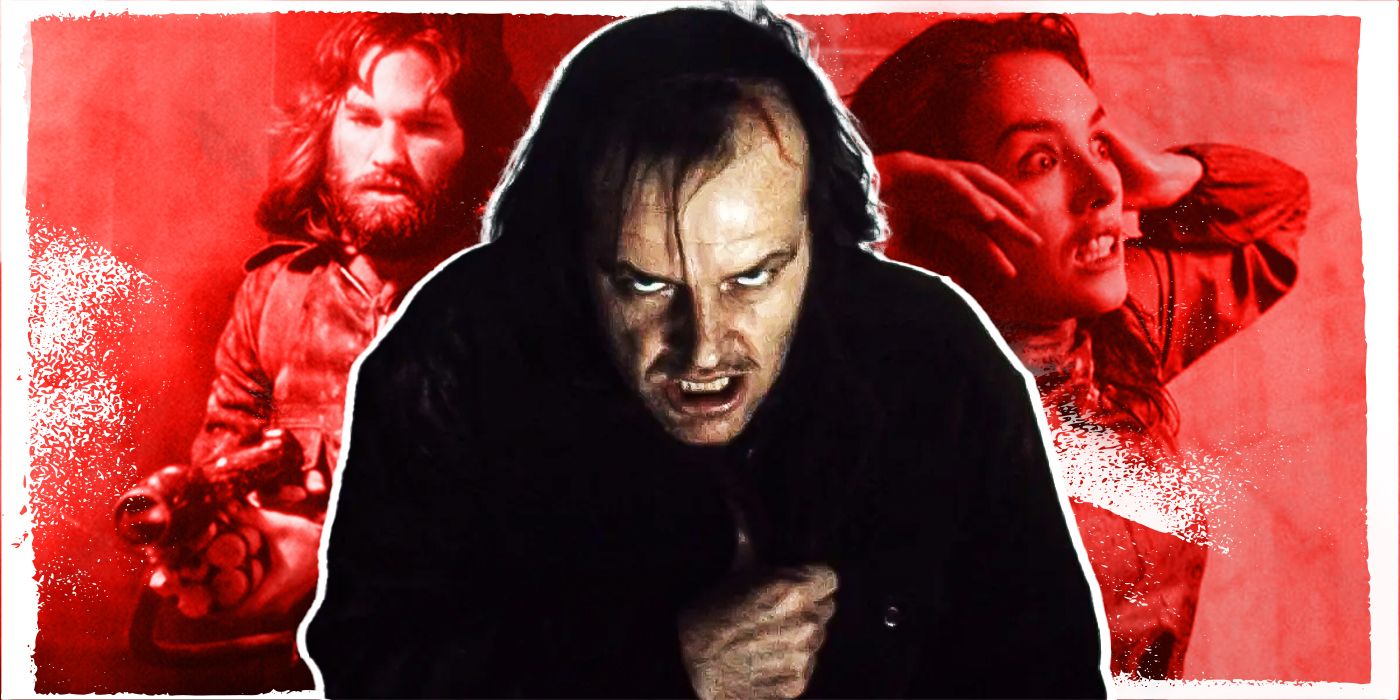
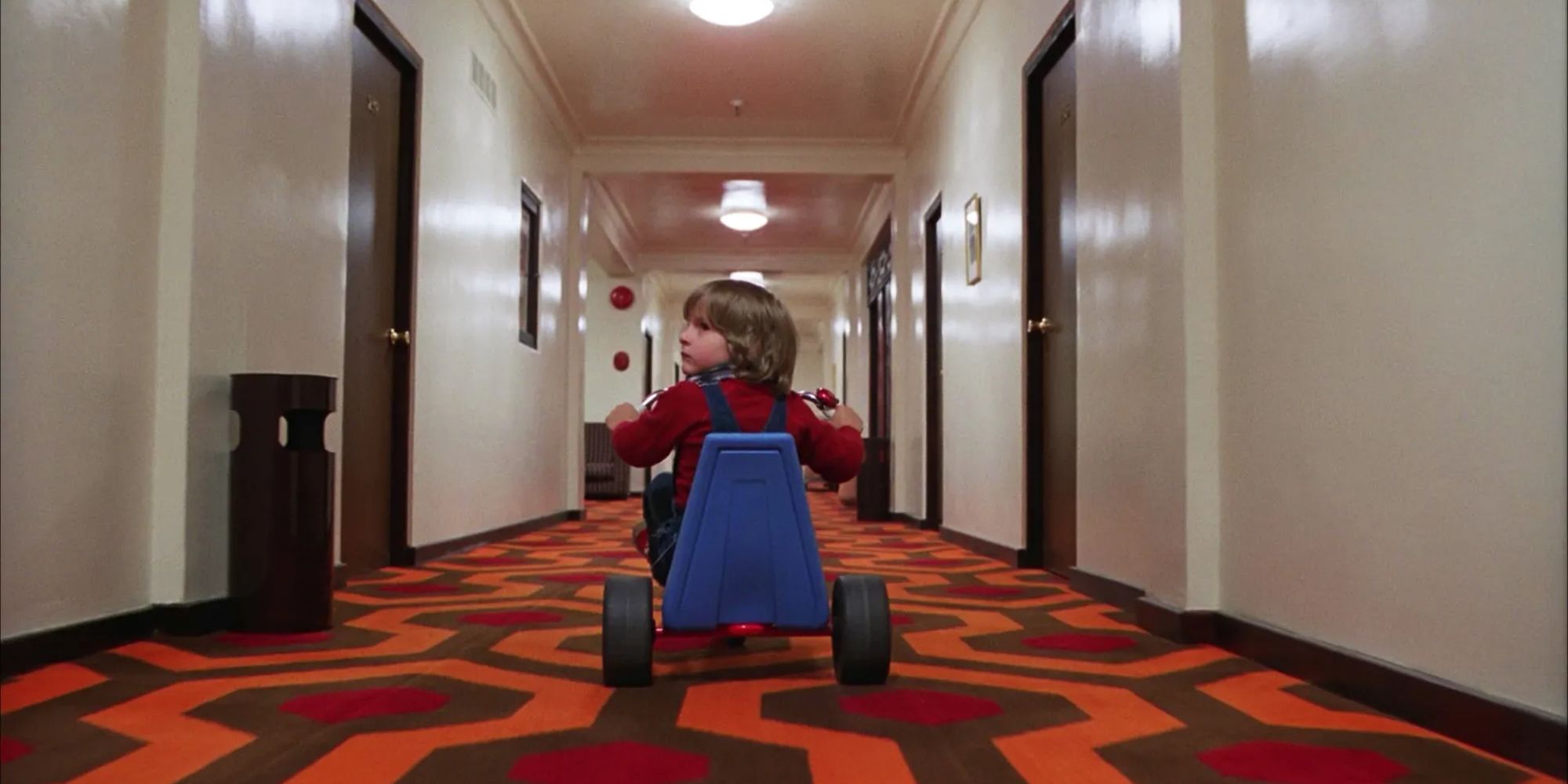
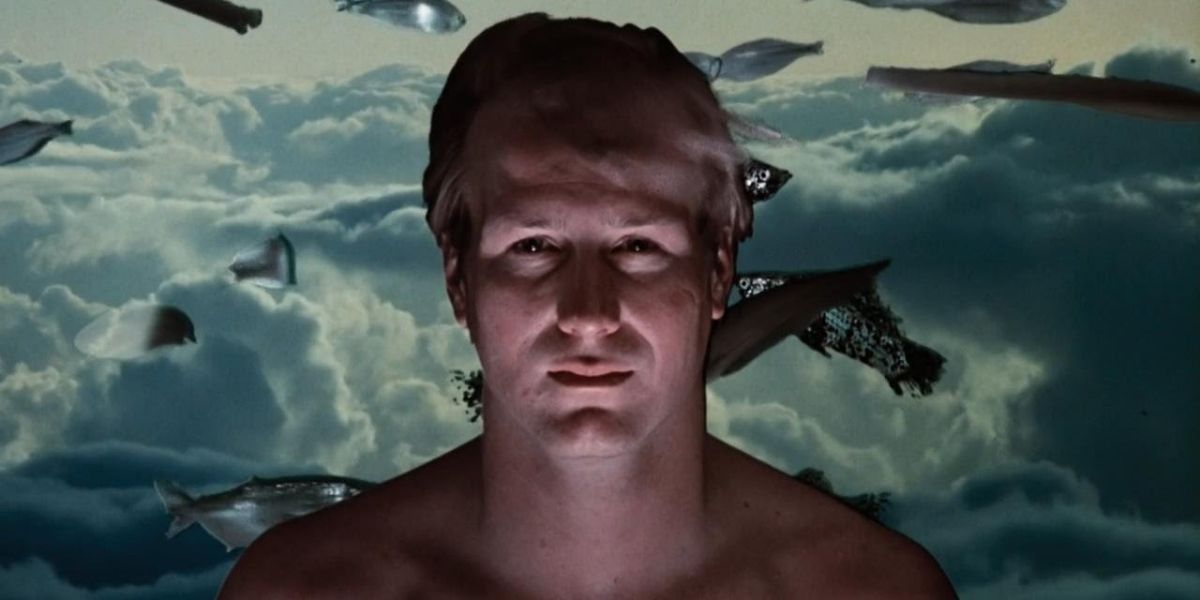
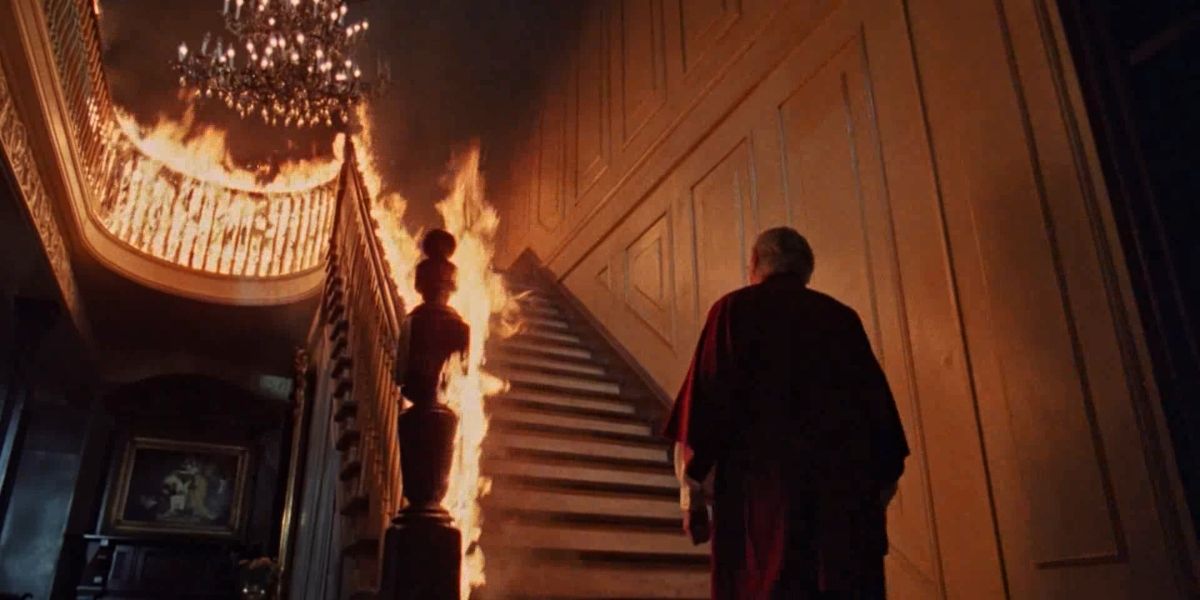
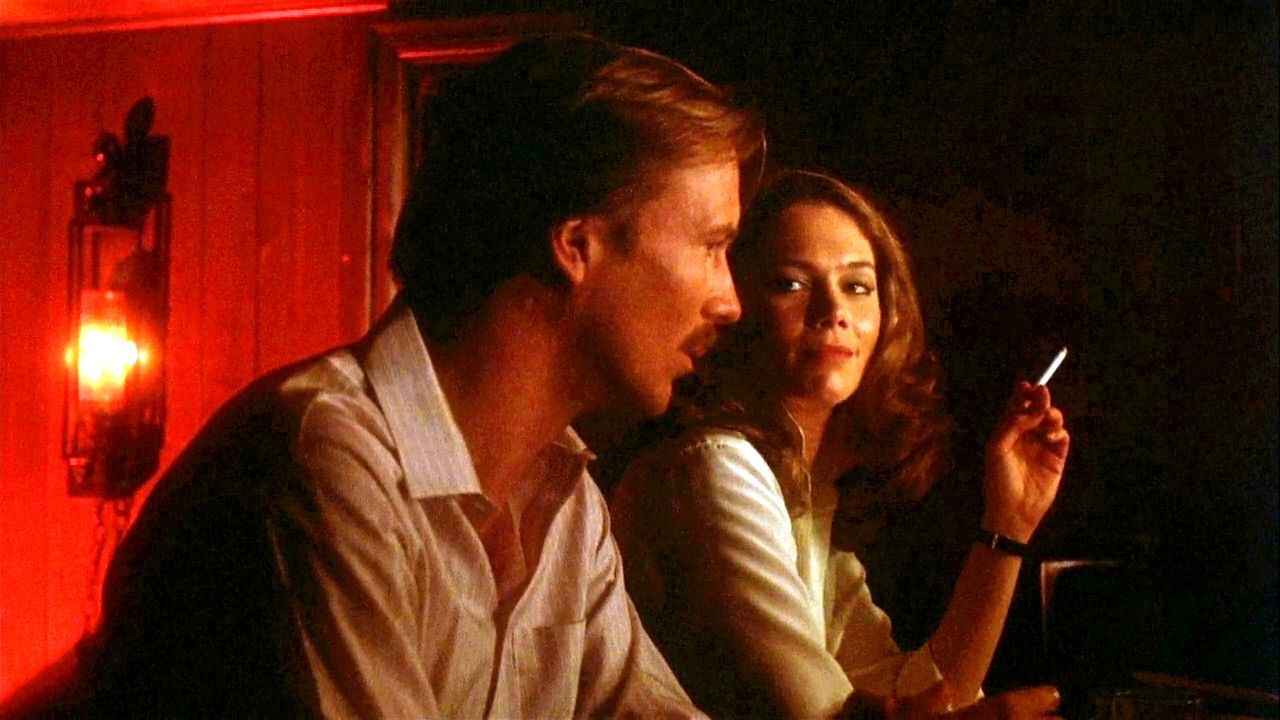
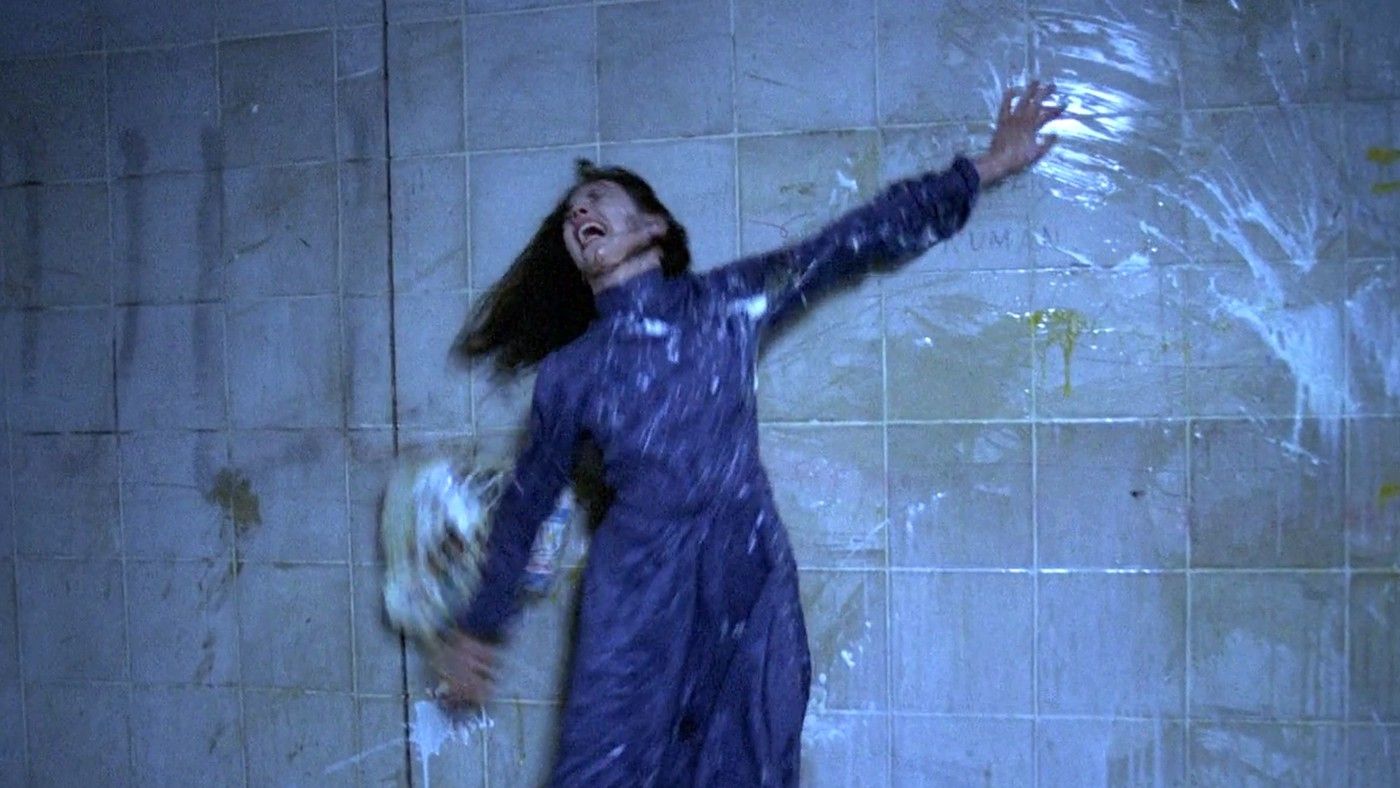
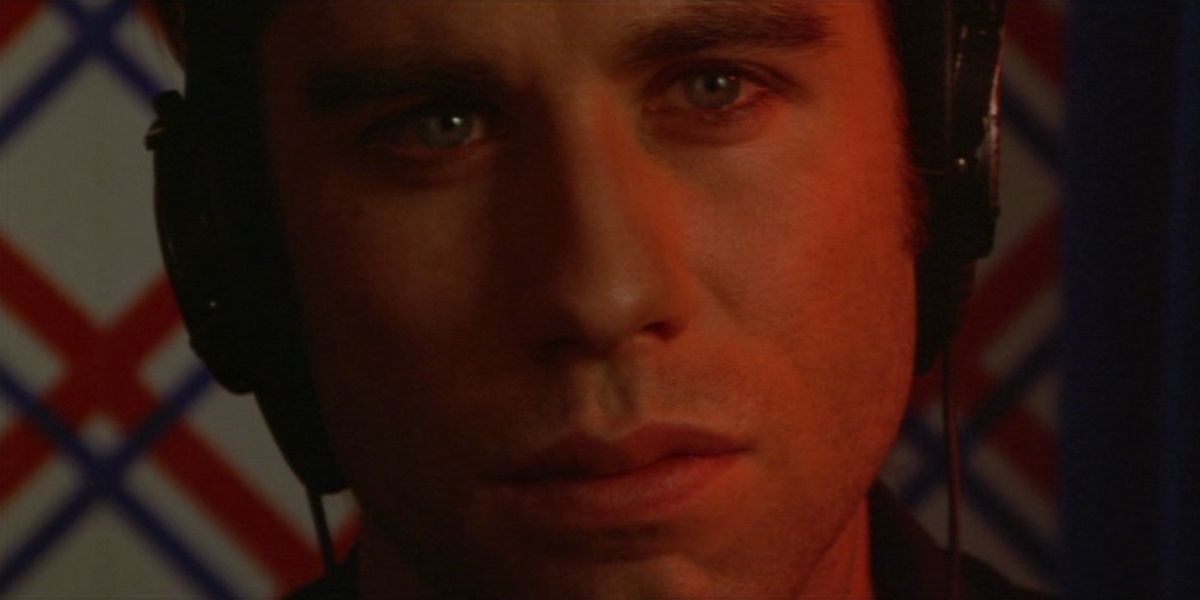
.jpg)
